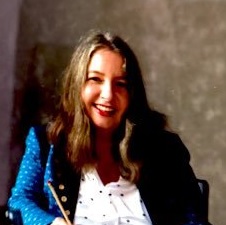A message from disaster response expert Professor Lucy Easthope
Publication date: 21 December 2023
My talk to the RCGP annual conference in October 2023 has felt like one of my most important and special of a very busy year. Fully articulating the scale of the disaster wrought by the pandemic, and a number of other factors, can be both devastating and empowering to an audience. I have never felt that more than when I spoke to College members.
General practice has always been the front line of community response in times of extremes. This time would be harder than ever. How you deliver and what you deliver is changing at a pace that feels terrifying, and a relationship that was so crucial between you and patient, feels fractured and uncertain. This is life in disaster. You, your practice, your receptionist, are one of the few times the scared, uncertain, lied-to communities get to interact directly with lantern bearers. You carry the torch in a community and say proudly, through your actions and through keeping a light on in the practice: "We will get you through."
Pursuing what we need
One of the many myths that we were sold in the pandemic was that it would be a short event, which would be brought to both a natural and political end. That is not what disasters do. They don’t end. We learn instead to live again alongside their consequences, and that’s the most important message I can give you as another year ends. It is time to articulate loudly and without fear what you need, and what your communities need to survive this.
I planned for the health consequences of a pandemic for twenty years: the missed diagnoses, the post-viral disease, the waiting lists. The excess deaths – many of which were theoretically preventable if times had been easier – leaving bereaved families angry with the first clinician they see as they process the grief, which is you. Your staff training in 2024 needs to focus in on this change, sharing with colleagues the disaster recovery literature that I shared with you, the accelerating slump as relationships fracture.
You also need to adjust to “combat levels of self care” as I outlined in my talk. A lot of my articles focus in on the practicalities of that suggestion. Pivot to the idea that you are disaster responders, and work accordingly. Your physical spaces need to say that too – I write a lot about the ‘lifescapes’ of communities after disaster, and your buildings are at the heart of that. They have become places which convey fear and dark times. It sounds a small thing, but trust me that it's fundamental. Plant up some planters, reinstate the ‘healthy eating’ displays. Try to send a message to your patients, your people, that there is some hope.
Moving forward into 2024
The type of hope that I see in aftermath is always fragile and fleeting, but it is also pure and miraculous. Seek it out. When your team has a win, celebrate it. If I know my recovery graphs at all, then 2024 will be a year of energizing and frenetic change. As societies attempt to come back from disaster, the speed of innovation can be dizzying and also feel very wrong. It can feel like forgetting. It can also leave staff and patients, morally injured and burnt out, feeling left behind. Help them.
Disaster planners like me work with the concept of the reasonable worst case scenario, which means we tell it like it is. I am not going to risk your wrath by suggesting that you use this very, very brief Christmas respite to rest or regroup. But at least try to do something nice for yourself and prioritise your own health a little.
I understand only too well the scale of the challenges you face this winter and in the months ahead. I will be there with you as we head into 2024. I see what you do, perhaps more than most. Use this brief moment to pause and remember that what you do makes a difference. Know that your hidden work, the bricolage that gets a community through, is seen by many of us.
From one disaster responder to another: thank you for it all, and happy Christmas!
Resources in disaster recovery
About the writers
Thank you for your feedback. Your response will help improve this page.
